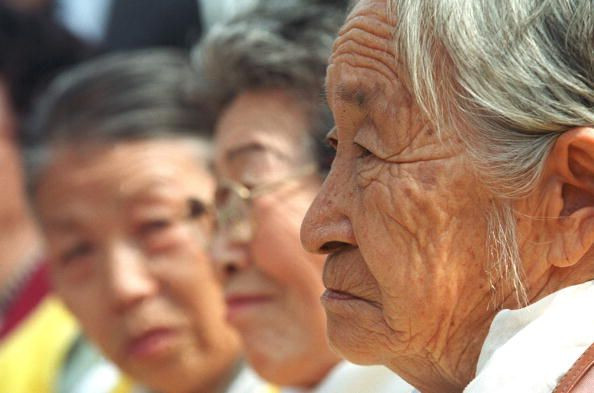Exercising More Past 60 Cuts Risk Of Stroke And Heart Disease

It'll be tough but people over 60 years old are supposed to exercise more every day to better stave off stroke and heart disease, according to a new medical study conducted in South Korea that involved more than one million participants.
This massive study conducted by the Seoul National University Graduate School Department of Biomedical Sciences included 1,119,925 men and women, aged 60 years and above. These participants underwent two consecutive health checks provided by the Korean National Health Insurance Service (NIHS) from 2009 to 2010, and from 2011 to 2012. Participants were followed up until December 2016. NIHS provides healthcare services for 97 percent of the South Korean population.
The study found people that did less moderate or vigorous physical activity as they grew older have as much as a 27 percent increased risk of heart and blood vessel problems. On the other hand, those that increased their levels of activity saw a reduced risk of cardiovascular disease of up to 11 percent.
The link between levels of physical activity and risk of cardiovascular disease in older people remained constant even for those with disabilities and chronic conditions such as type 2 diabetes, high blood pressure and high cholesterol levels.
Researchers also discovered people that went from being continuously inactive at the 2009-2010 health check to being moderately or vigorously active at least three to four times a week at the 2011-2012 health check had an 11 percent reduced risk of cardiovascular problems.
Individuals that were moderately or vigorously active one or two times a week at the first check had a 10 percent reduced health risk if they increased their activity to five or more times a week.
On the other hand, those moderately or vigorously active more than five times a week at the first check, and who then became continuously inactive at the second check saw a 27 percent increased risk of cardiovascular problems.
People with disabilities and chronic conditions that changed from being inactive to being moderately or vigorously active three to four times a week also reduced their risk of cardiovascular problems. People with a disability saw a reduced risk of 16 percent, while those with diabetes, high blood pressure or cholesterol levels had a reduced risk of between 4-7 percent.
"The most important message from this research is that older adults should increase or maintain their exercise frequency to prevent cardiovascular disease," Kyuwoong Kim, a PhD student at the Seoul National University Graduate School Department of Biomedical Sciences, said.
Globally, this finding is of public health importance because the world's population of 60-year-olds and older is projected to hit two billion persons by 2050, as per the World Health Organization (WHO). This total is a massive 12 percent increase from 900 million in 2015.
Dr. Kim said that while older adults find it difficult to engage in regular physical activity as they age, their research suggests it's vital to be more physically active for cardiovascular health. This conclusion is also true for people with disabilities and chronic health conditions.
"We believe that community-based programs to encourage physical activity among older adults should be promoted by governments. Also, from a clinical perspective, physicians should 'prescribe' physical activity along with other recommended medical treatments for people with a high risk of cardiovascular disease."

Published by Medicaldaily.com



























